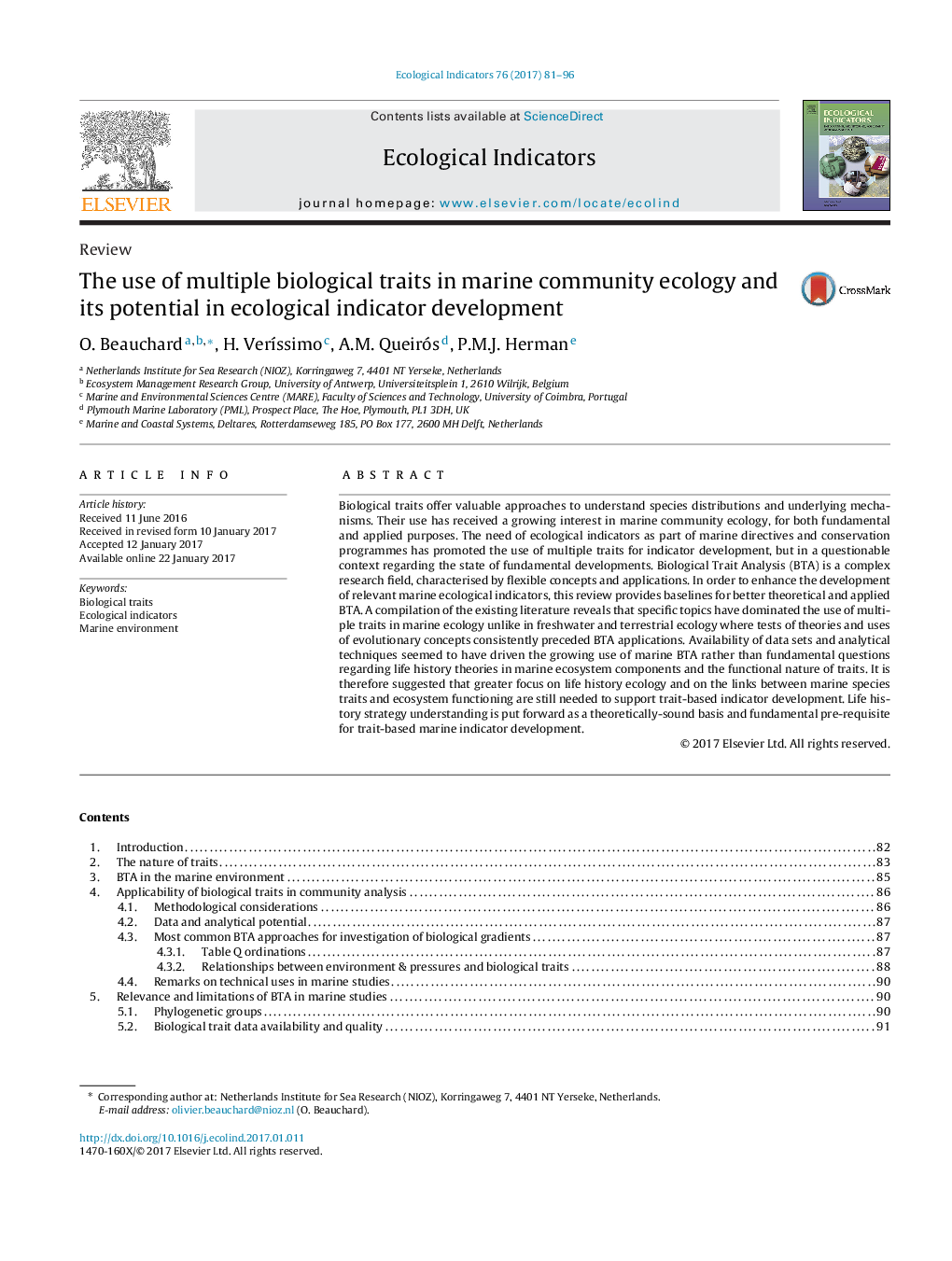| Article ID | Journal | Published Year | Pages | File Type |
|---|---|---|---|---|
| 5741674 | Ecological Indicators | 2017 | 16 Pages |
â¢The use of biological traits has received a growing interest in marine ecology as a means to improve the understanding of marine ecosystem functioning.â¢A review of the related literature reveals that biological trait analyses do not evenly cover all ecosystem components and trait functionalities.â¢Although the use of multiple traits enables the understanding of mechanistic processes filtering species fitness and sensitivity to environmental variability, theoretical support is still lacking in marine studies.â¢Understanding life-history strategies through biological trait analysis appears to be a strong basis of “theoretically-sound” indicator developments.
Biological traits offer valuable approaches to understand species distributions and underlying mechanisms. Their use has received a growing interest in marine community ecology, for both fundamental and applied purposes. The need of ecological indicators as part of marine directives and conservation programmes has promoted the use of multiple traits for indicator development, but in a questionable context regarding the state of fundamental developments. Biological Trait Analysis (BTA) is a complex research field, characterised by flexible concepts and applications. In order to enhance the development of relevant marine ecological indicators, this review provides baselines for better theoretical and applied BTA. A compilation of the existing literature reveals that specific topics have dominated the use of multiple traits in marine ecology unlike in freshwater and terrestrial ecology where tests of theories and uses of evolutionary concepts consistently preceded BTA applications. Availability of data sets and analytical techniques seemed to have driven the growing use of marine BTA rather than fundamental questions regarding life history theories in marine ecosystem components and the functional nature of traits. It is therefore suggested that greater focus on life history ecology and on the links between marine species traits and ecosystem functioning are still needed to support trait-based indicator development. Life history strategy understanding is put forward as a theoretically-sound basis and fundamental pre-requisite for trait-based marine indicator development.
